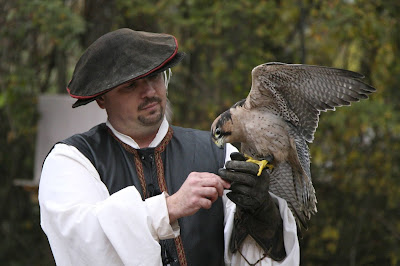Copyright 2020 by Gary L. Pullman
A sudden
blow: the great wings beating still
Above the
staggering girl, her thighs caressed
By the dark
webs, her nape caught in his bill,
He holds her
helpless breast upon his breast.
How can those
terrified vague fingers push
The feathered
glory from her loosening thighs?
And how can
body, laid in that white rush
But feel the
strange heart beating where it lies?
A sudden
shudder in the loins engenders there
The broken
wall, the burning roof and tower
And Agamemnon
dead. Being so caught up,
So mastered
by the brute blood of the air,
Did she put
on his knowledge with his power
Before the indifferent beak could let
her drop?
Commentary
This poem
recounts Zeus’ rape of Leda, the wife of Sparta’s King Tyndareus.
From this union, the twin Castor and Polydeuces were born, as was
their sister, Helen of Troy. When Helen was abducted and carried off
from Sparta to Troy, her brothers rescued her.
The poem begins
with violence. Zeus, having taken the form of a swan, ravishes Leda,
and there is neither tenderness nor love in the act; it is a “brutal”
violation, not an act of love, in which a god seizes that which he
desires by brute force. The first words suggest only a physical
assault. There is “a sudden blow,” the “beating” of wings,
and a “staggering girl.” However, the next images of the opening
lines quickly add a sexual context. The assault is not merely
physical; it is sexual-it is rape: the girl’s’ “thighs [are]
caressed/By the dark webs,” and “her nape [is] caught in his
bill”:
A sudden
blow: the great wings beating still
Above the
staggering girl, her thighs caressed
By the dark
webs, her nape caught in his bill,
He holds her
helpless breast upon his breast.
If we are
familiar with the myth in which Zeus takes the form of a swan to
ravish Leda, these lines make sense at once. If we are not familiar
with the myth, the sudden references to “wings” and “webs”
and “bill” are not only unexpected but fantastic, even bizarre.
The rapist, we realize, is not a man but a bird-the bird, apparently,
alluded to in the title of the poem. In either case, the depiction of
bestiality-and an adulterous bestiality at that-arrests our
attention. The rape becomes both immediate and concrete. It is not
merely a past event described; it is one that is taking place, as it
were, before our eyes and, as witnesses to this “brutal” act, we
must feel much the same as its victim feels.
Leda is not a
willing participant in the act. Terrified, she tries to resist,
struggling to push her attacker’s “feathered glory from her
loosening thighs”:
How can those
terrified vague fingers push
The feathered
glory from her loosening thighs?
She is unable
to prevent the assault. She is, after all, a mortal woman, whereas
her attacker is none other than Zeus himself. It is the chief of the
gods who holds her “helpless breast upon his breast.”
The next lines
reinforce the attacker’s bestial character. The rapist is not
human. In fact, Zeus, in his present guise, is of another species
entirely, and Leda, “laid in that white rush,” cannot help but
feel “the strange heart beating where it lies.”
With his
emission, Zeus engenders not only Leda’s future children, but
creates the catalyst for the Trojan War as well, for it will occur
due to the abduction of Leda’s daughter, Helen:
A sudden
shudder in the loins engenders there
The broken
wall, the burning roof and tower
And Agamemnon
dead.
The concluding
lines of the poem ask whether Leda envisioned the future war, which
Zeus, it seems, even in the act of ravishing her, knew would occur.
In addition, these lines tell the reader explicitly that Zeus had no
feeling whatever for the object of his lust, dropping Leda with
indifference as soon as he had satisfied his passion:
So mastered
by the brute blood of the air,
Did she put
on his knowledge with his power
Before the
indifferent beak could let her drop?
The poet leaves
no room for debate as to whether Zeus felt any love or affection for
the woman he ravished. The god felt nothing for her; she was only a
means of satisfying his lust and, perhaps, a vehicle by which to set
up the future war between the Greeks and the Trojans. Whether he
allowed her to glimpse that future war is unclear, as is the question
of his motive if he did allow her a prophetic glimpse of the
catastrophe to come. If he did permit Leda to foresee the war, was it
to dignify or justify his rape of her or was it to torment her by
letting her see what would come of the act?
Nowhere in the
poem do we get any hint that Zeus is at all concerned with Leda as a
human being. In fact, the opposite is true. The rape is sudden and
violent; Leda is “terrified”; she attempts to resist, but is
“helpless,” “mastered by the brute blood of the air.” When
Zeus finishes with her, his “indifferent beak” lets her “drop.”
It would seem, therefore, that his motive, if he did grant her a
glimpse of the war to come, must have been to torment her with the
knowledge that her rape would be followed by a future war, resulting
from her daughter’s abduction, in which thousands will be killed.
Zeus is not human on any level. As a god, he is not only above human
beings but he has neither human feelings nor any feeling for them.
























